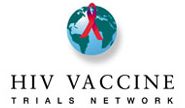 | |
| Company type | Non-profit organization |
|---|---|
| Industry | HIV vaccine research |
| Headquarters | Seattle, Washington |
Key people | Lawrence Corey, Lead PI |
| Website | http://www.hvtn.org |
The HIV Vaccine Trials Network (HVTN) is a non-profit organization which connects physicians and scientists with activists and community educators for the purpose of conducting clinical trials seeking a safe and effective HIV vaccine. Collaboratively, researchers and laypeople review potential vaccines for safety, immune response, and efficacy. The HVTN is a network for testing vaccines, and while its members may also work in vaccine development for other entities, the mission of the HVTN does not include vaccine design. [1]
Contents
- Community involvement
- African HIV vaccine trials
- American HIV vaccine trials
- See also
- References
- External links
The HVTN is the only HIV vaccine research network sponsored by the American government. It also manages the only large-scale HIV vaccine research trial network in Africa. [2] The HVTN collaborates with the Division of Acquired Immunodeficiency Syndrome (DAIDS). Funding comes from the National Institute of Allergy and Infectious Diseases and National Institutes of Health, [3] which oversee DAIDS. HVTN is headquartered at the Fred Hutchinson Cancer Research Center in Seattle. [4] The vaccines being tested come from various producers, both commercial and non-profit. [5]
